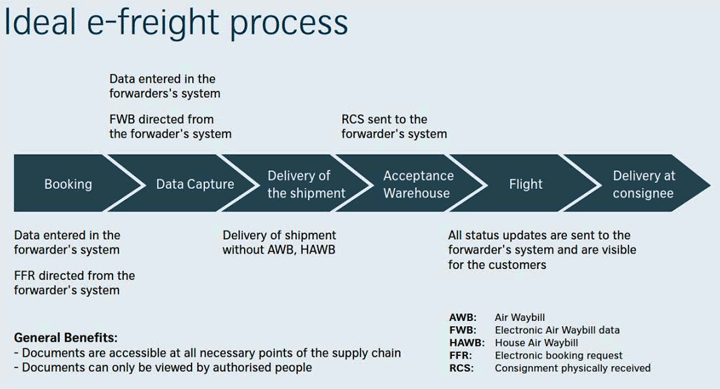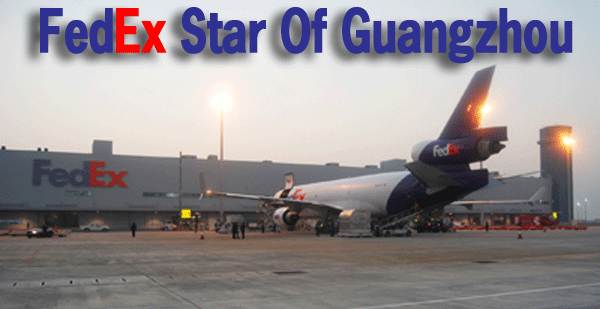|  Echoes Echoes
1975-2015
The
year 2015 marks our 40th year in the world of air cargo news reporting—first
as Air Cargo News and now
as FlyingTypers.
The
stewardship of Air Cargo News FlyingTypers hasn't changed
since 1975, and while that is an impressive feat, what is even more
remarkable is that in 2015 we have been fortunate to present the
writings of the nearly 102-year-old Richard Malkin, who remains
the first air cargo reporter in history (circa 1942) and now serves
as FlyingTypers' Senior Editor.
Here
Richard continues a remembrance of events in an exclusive year-long
series, "Echoes 1975-2015."

Promises, promises. Why not? If
air travelers may now purchase e-tickets, why not grant air cargo
customers the efficiencies of an e-air waybill—a system denuded
of paper? You don’t have to look deep into the automobile
industry to realize that a driverless car is in the reasonably near
future.
Opinion-gatherers’ early reports indicate
that most users welcome the idea of paperless freight, but there
is a hard core of old timers, largely in the forwarder sector, who
believe that a hands-on process will not be superseded. Others suggest
that it’s a mistake to set a deadline for a paperless industry,
for they are convinced the promoters are too optimistic.
Prompted by feasibility studies, which covered manufacturing and
trends in trade over the ensuing three decades, Federal Express
arrived at a decision to say farewell to its Asia Pacific hub in
Subic Bay, Philippines, and transfer to Guangzhou Baiyun International
Airport.
 For Fed Ex it is an investment of $150 million
in a facility that will provide 82,000 square meters of floor space.
The hub will sit on 155 acres and will be able to sort up to an
hourly total of up to 24,000 packages. This is double the output
at Subic Bay. It will take some 1,200 employees to do the projected
task. The company will maintain Philippine presence in Manila and
Cebu.
For Fed Ex it is an investment of $150 million
in a facility that will provide 82,000 square meters of floor space.
The hub will sit on 155 acres and will be able to sort up to an
hourly total of up to 24,000 packages. This is double the output
at Subic Bay. It will take some 1,200 employees to do the projected
task. The company will maintain Philippine presence in Manila and
Cebu.
Richard Malkin
|





